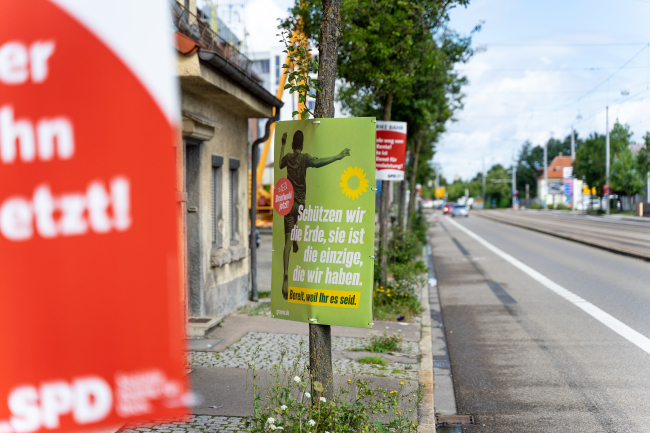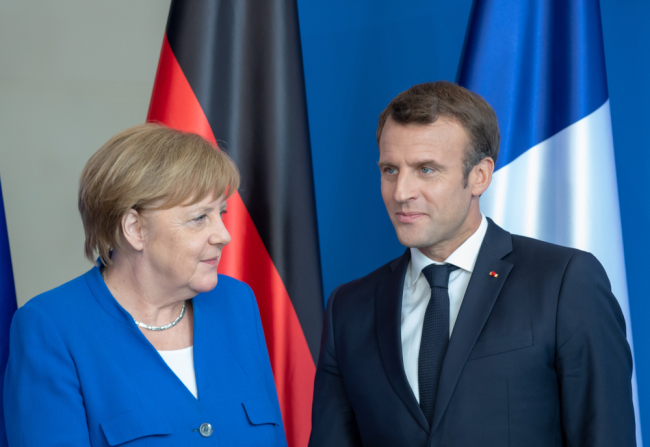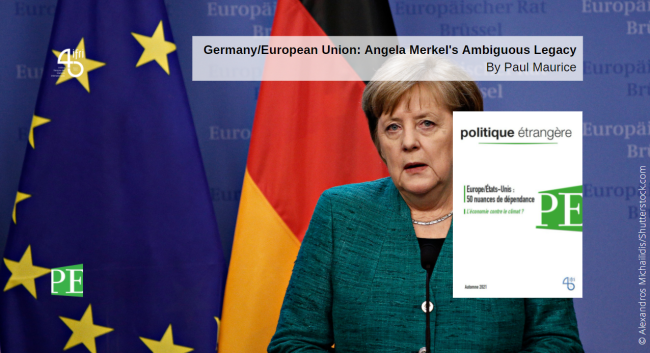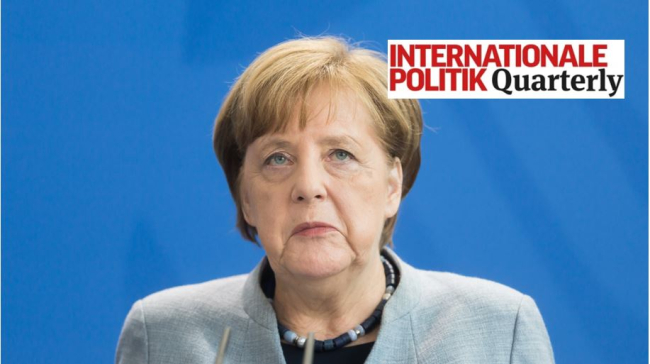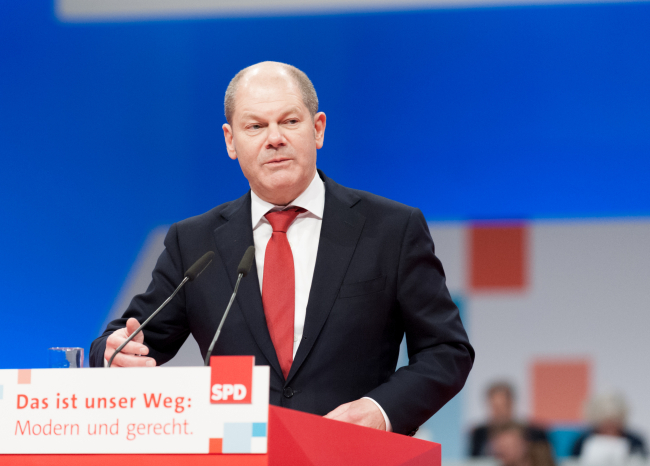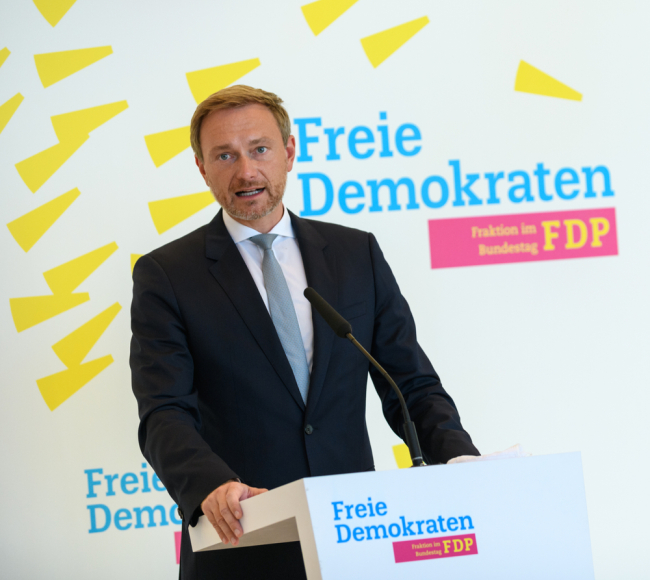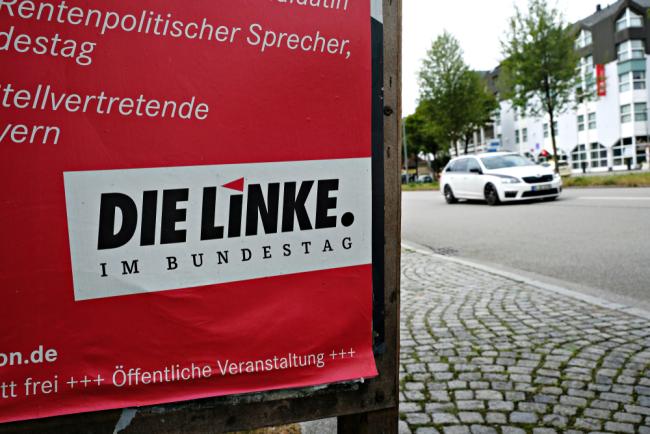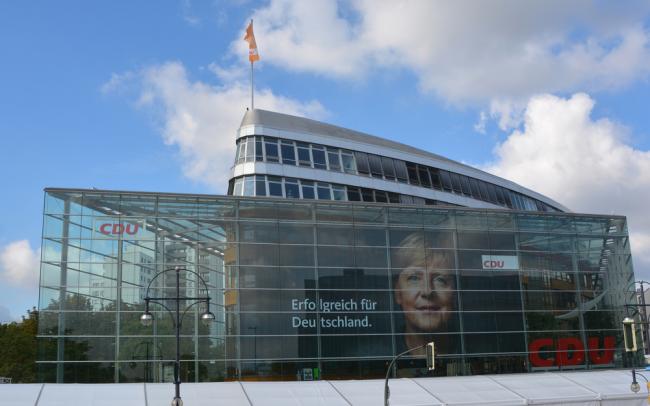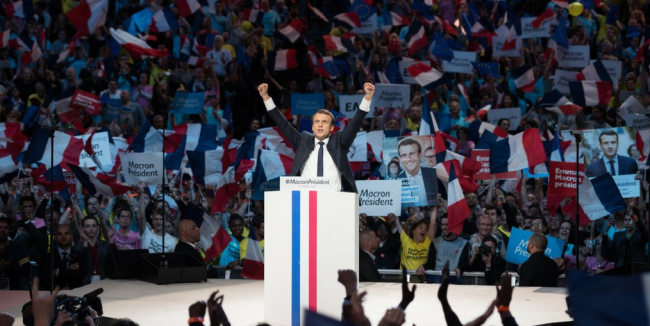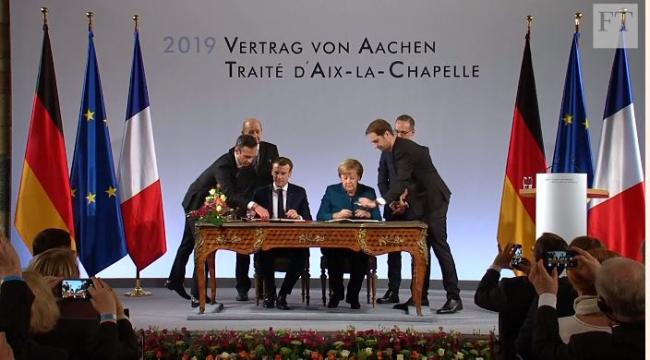What foreign policy for Germany after the end of the Merkel era?
One cannot help but wonder about Germany’s future foreign policy when one considers both the weight of the Federal Republic and the many crises we face internationally.
A Changing Germany: The Party System Tested in the 2021 German Federal Elections
The German federal elections of September 26, 2021 were marked by the departure of the outgoing chancellor, Angela Merkel, who was not seeking re-election. The scattering of the vote and the high volatility of voters have led to a redefinition of the landscape and geography of parties in Germany.
The Future of the Franco-German Tandem
At the heart of the European project, the Franco-German tandem provides impetus for further integration within the EU. However, Brussels is yet to decide which direction it wants to take, and the French and Germans still have to agree on their position with regards to economics, foreign affairs, and enlargement.
Germany/European Union: Angela Merkel’s Ambiguous Legacy
Angela Merkel is ending her fourth term as German Chancellor. Although she has made a number of statements demonstrating her commitment to the European project, her record in this area nevertheless appears to be mixed.
Advancing Europe: Green for Danger?
In France, the prospect of the Greens entering the German government this fall raises both hopes and fears.
The SPD Between Programmatic Reorientations and Political Continuity?
Just like most of the European Social-Democratic parties, the Social Democratic Party of Germany (SPD) has been going through a major crisis for several decades. Its centrism that got Gerhard Schröder elected in 1998 and 2002 is seen as a betrayal by the party's traditional electoral base.
The German Presidency of the EU Council 2020. What Role for Paris and Berlin?
The German EU presidency in the second half of 2020 was Angela Merkel’s last presidency, shortly before her chancellorship ends in 2021. It was therefore expected that the Chancellor would use all her experience and influence to achieve positive results.
The Free Democratic Party (FDP): Liberal Corrective Again After the 2021 Bundestag Election?
After the regional elections in Rhineland-Palatinate and Baden-Württemberg in March 2021, the FDP is attracting more attention again, mainly because of its traditional role as a coalition party.
What Is Left and to Whom? Germany’s Left-wing Party Die Linke and the Search for Its Identity
In late February 2021, Germany’s left-wing party Die Linke gave themselves a new party executive. The new team is supposed to lead the party into the federal elections in September and, if possible, into a national center-left government.
Uncertain Times Lie Ahead. The CDU at the End of the Merkel Era
Since 2018, the Christian Democratic Union (CDU - Christlich Demokratische Union) has been confronted with a long-lasting leadership crisis. Annegret Kramp-Karrenbauer, Merkel’s favorite candidate for the position of party leader, was not able to maintain herself at the top of the party and resigned after only 15 months.
Between political crisis and European recovery attempt: German interrogations
Even though the CDU-CSU led Grand Coalition was renewed following the German legislative elections of 24 September 2017, and even though Angela Merkel was re-elected chancellor a fourth consecutive term, the country has entered a period of growing political uncertainty. The formation of a new government took much longer than after previous elections for a number of different reasons: after negotiations, the liberal party refused to join a coalition with the CDU-CSU and the Green party, the SPD was reluctant to continue in government, and, above all, the internal divisions of the two sister parties CDU et CSU, that nearly caused the fall of the new government three months after its investiture.
Meeting Macron in the Middle. How France and Germany Can Revive the EU
Macron's presidency offers a rare chance to revive the French-German relationship just when Europe needs it most.


Germany's FDP holds Strong Cards in Post-Election Haggling
Buoyant from its best election result in 10 years, Germany's liberal FDP party looks set to play a outsized role in coalition negotiations to form the next government.


Armin Laschet: Merkel’s heir apparent?
Angela Merkel has governed Germany for 16 years and proven a reliable ally both in Europe and for the world. Will her party colleague hoping to succeed her follow in her footsteps or diverge from her path in order to forge his own legacy?
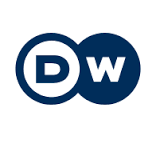

The end of the Merkel-Macron era — a mediocre legacy?
German Chancellor Merkel has met with French President Macron in what could be her final working visit to France. Some analysts say their cooperation should have produced more results.
France prepares for Departure of Sometimes Reluctant Partner and Rival Merkel
Macron set to become the uncontested leader of Europe with German chancellor’s exit. Chancellor Angela Merkel was not naturally inclined to focus on Franco-German relations. “She comes from the former East Germany, and her experience was of east bloc countries, especially Russia, ” says Sabine Rau, Paris bureau chief for the German public television network WRD.
Merkel and Macron betray weakness with cautious Aachen treaty
When Angela Merkel and Emmanuel Macron sign a new Franco-German treaty in the historic city of Aachen on Tuesday, there will be much soaring rhetoric about the deepening ties between the two countries. To critics, though, the Treaty of Aachen is thin gruel. Anyone hoping for a new, tighter alliance between France and Germany, and for signs that the two countries might once again drive European integration, will be disappointed.
Support independent French research
Ifri, a foundation recognized as being of public utility, relies largely on private donors – companies and individuals – to guarantee its sustainability and intellectual independence. Through their funding, donors help maintain the Institute's position among the world's leading think tanks. By benefiting from an internationally recognized network and expertise, donors refine their understanding of geopolitical risk and its consequences on global politics and the economy. In 2025, Ifri supports more than 80 French and foreign companies and organizations.









